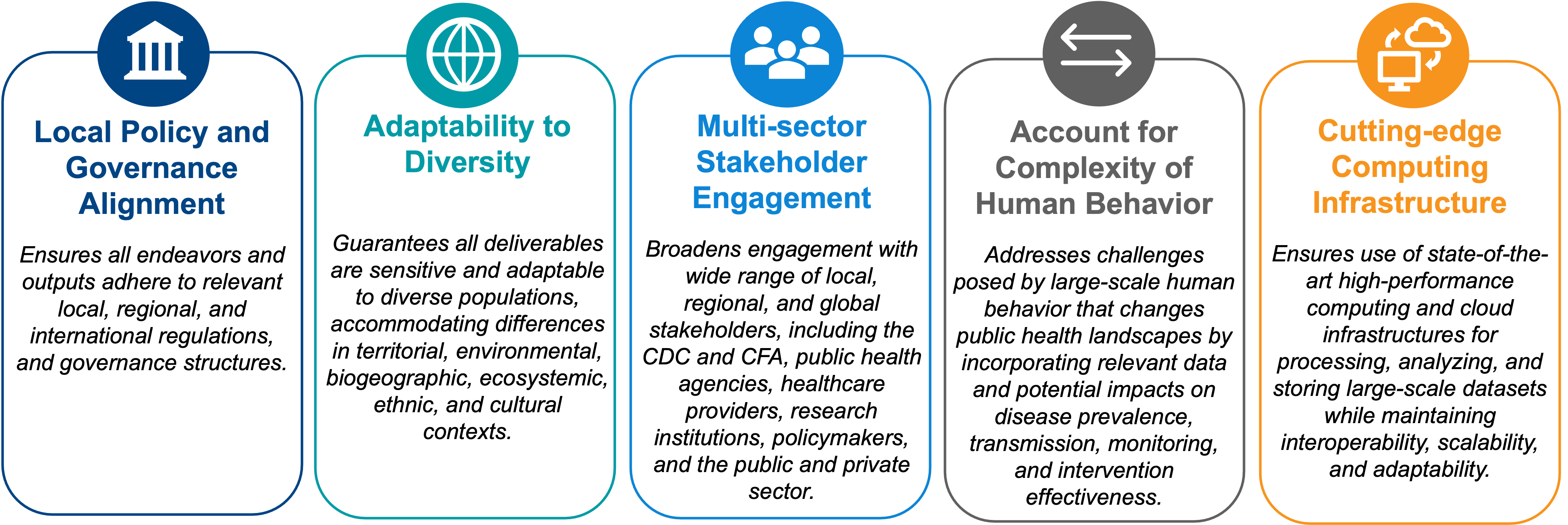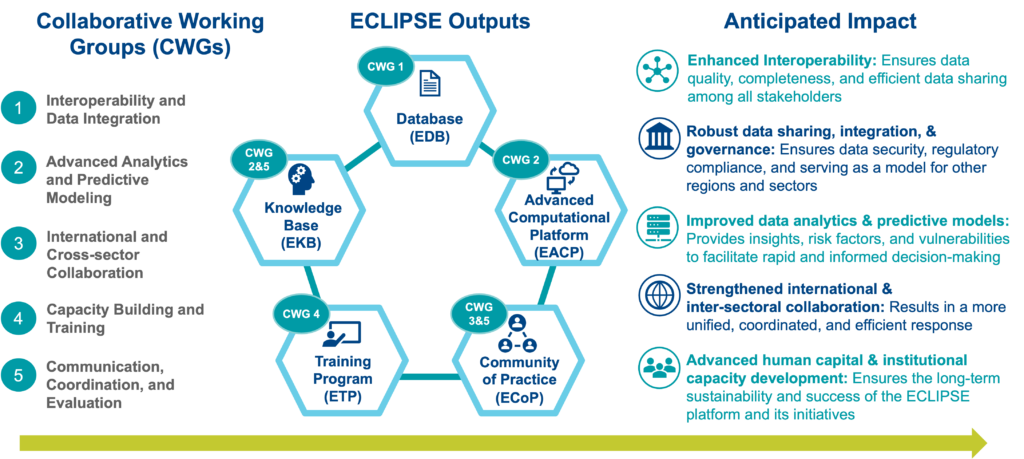ECLIPSE PROJECT
Background
The COVID-19 pandemic has highlighted the need for improved data handling, nowcasting, and forecasting techniques in managing public health crises. Existing public health systems face challenges due to fragmented data, lack of interoperability, and slow communication. Timely and accurate data is crucial for evidence-based decision-making, but privacy and security must also be considered. Trustworthiness with decision-makers is essential, along with the establishment of a comprehensive test bed for evaluating interventions. The pandemic has provided valuable lessons for future preparedness, emphasizing the importance of data-driven insights, international coordination, public engagement, and clear communication. Leveraging these learnings, the ECLIPSE Consortium aims to enhance collaboration, interoperability, data sharing, and predictive modeling for disease surveillance and intervention evaluation.
The consortium will create a connected community, an advanced computational platform, a comprehensive database, a training program, and a knowledge base to strengthen public health emergency preparedness.
The ECLIPSE initiative focuses on five key dimensions: interoperability and data integration, advanced analytics and predictive modeling, international and cross-sector collaboration, capacity building and training, and communication, coordination, and evaluation. Through these efforts, ECLIPSE seeks to revolutionize disease surveillance and intervention evaluation, ultimately improving public health responses and creating a healthier and safer future.
</span style="caret-color:>
Overall Approach
The ECLIPSE Consortium presents an opportunity to safeguard against future health crises by filling the needs stated above. By creating advanced analytic platforms, fostering a culture of continuous learning, promoting innovation and collaboration among diverse stakeholders, and ensuring that our strategies are underpinned by scientific evidence and equity, the consortium will build a stronger, agile, and resilient global network for outbreak response. The main outputs of this consortium will significantly enhance our ability to share data and knowledge, to understand the impact of infectious and non-communicable diseases on populations, and evaluate the effectiveness of interventions, ultimately contributing to reducing disease burden and improving public health outcomes. A set of principles, shown below, will guide this work.
Guiding Principles

Overview

Governance

Deliverables
Work Plan

